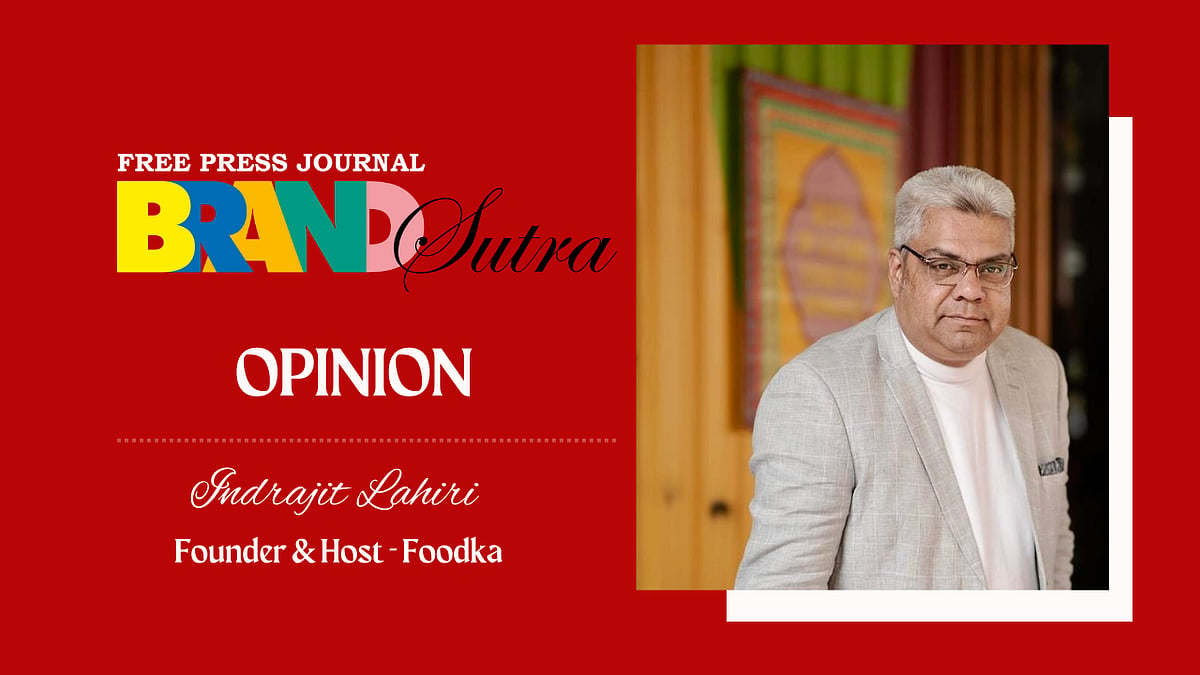P Chandra Shekhara Reddy has been with Gemini Edibles and Fats, the company that sells the Freedom brand of edible oils, before the brand name was coined in 2009. He has been with the category of edible oils for even longer, as have many in his team including the company’s founder and MD, Pradeep Chowdhary, Managing Director. The longstanding relationships with the trade in Andhra Pradesh and Telangana helped the brand establish itself quickly.
The brand that was born in 2010 became a market leader in its home states of Andhra Pradesh and Telangana fairly early. With a majority of sunflower oil consumption happening in South India, Reddy reveals plans to cover the rest of this core market for the category.
“Later we started in Orissa and Karnataka and now we have started in Chhattisgarh. In 2024, we are launching in Tamil Nadu and Kerala,” he says. Edited excerpts:
What explains the runaway success of the brand in its home markets?
Today we are in the 13th or 14th year of operations. But we became the talk of the country way back in 2014, started getting recognised for growing well in the edible oil space, doing well in terms of profitably, brand recognition etc.The success is because we have been in this market for 30 years. There is a lot of trade trust. It is very rarely that all the elements work in marketing. Usually you do five things and only a few things or a few areas work. We have been successful because we have been here for a long time and we have been doing consumer and trade marketing properly.
It is also not just marketing. Putting up the infrastructure (the plant) was also addressed to handle supply needs. And more than all that, the competition did not wake up until 2016 or 2017. Once the category is built and a player has established, it is difficult to make inroads. The result is that they lost the growth curve, they were late.
By 2014 or 2015, the brand had become number one in the states we operated in. Since 2022, we became the top player nationally and we have consistently retained the leadership over several quarters (Nielsen IQ data).
Today we are the largest importer, the largest processor, the largest brand of sunflower oil.
In the category, roughly 95 pc of the 2.2 mn tonnes of requirement of the Indian market is imported. Freedom accounts for 22 to 23 pc of the imports. We also have the largest processing capacity in the South. Freedom is the largest selling brand of sunflower oil with 22 pc market share, for the last several quarters.
Andhra Pradesh and Karnataka were sunflower growing states. But the kind of growth edible oils saw in the country, domestic production did not catch up. There came the time of liberalisation and the market was opened up, employment opportunities and quality of life went up. Post ‘90s, there was a sudden jump in edible oils requirement. The farmer also was getting a lot of options, in the form of BT cotton, rising pulses prices. In the process, imports of edible oil was cheaper. Till the early 1990s, it was only the government importing. Post liberalisation, anyone could import.
Sunflower oil manufacturing capacities were available in the hinterland (away from the ports). No one had invested in sunflower oil refining infrastructure at the ports. Despite there being so much demand, no one put up that infrastructure. We invested in it. It was a timely decision to put up a refinery of international standards at the port.
What was the competitive space like, at launch?
Brands were present even before us. We started in 2010 – some were there from 1990, some from 1995, some from 2002 and some from 2004. There is an AP government-owned brand, there is Sundrop, Fortune, Goldwinner. There is always a sourcing issue. We addressed the sourcing issue, we addressed the distribution problem. Where others were advertising sporadically, we advertised consistently.
We were local players. A number of people on the team had worked in ITC before. There was enormous trust the trade placed in us.
We were unwavering in our marketing. In a commodity where there is no perceived difference among consumers between a brand A, brand B and brand C, we have to build perception gradually and bring it to an emotional differentiation. Many of us can’t tell the difference in the product until and unless we repeatedly cook using it.
So this 22 pc all India share is contributed just by Andhra Pradesh, Telangana, Orissa, Karnataka and Chattisgarh. Is that right?
Yes, we are largely present in those markets. We do have some small presence in Chennai, Kolkata, some parts of Maharashtra and some others. But that is not significant.
We have a 62 pc market share in AP, 68 pc in Orissa, 40 pc in Telangana, 10 pc in Karnataka. We started operations in Karnataka only in 2017.
You have products like groundnut oil, rice bran oil that you have launched after sunflower oil. How are they doing?
The purpose of launching more products is to cater to multiple consumer needs. Some people like to cook using groundnut oil. With health awareness, rice bran oil is growing. It has become popular only in the last two decades though it has been around for much longer. The government is also trying to reduce the dependence on imports. So for those reasons we also got into that.
With migration of people from the North, there is now demand for mustard oil also. To cater to everyone’s palate, we have entered other categories. We are not present in coconut and gingely oils. We will look at those also when appropriate. When we go to Tamil Nadu, probably we will launch those.
Sunflower oil is still the largest contributor for us. All the other oils put together for us would be less than 10 pc share.
So what will the future roadmap be? Gradual expansion on the back of sunflower oil, or geographic expansion nationally using the larger portfolio?
In a commodity business, things like sourcing, inventory, all that matters a lot – this is a low margin, high volume business. Out of the 2.2 mn tonnes of sunflower oil that India needs, 80 pc is consumed in the South, plus Orissa and Maharashtra. Among these markets, today we are not present in Maharashtra, Tamil Nadu and Kerala. We are rolling out products in 2024 in Tamil Nadu and Kerala.
We are also expanding the capacity. In the last two decades all the refineries (for sunflower oil and palmolein) have come up near the ports, because it is mostly dependent on imports.
In the first decade of liberalisation, the domestic production was constant while there was a rise in imports. In the second decade, there was a fall in domestic production and further rise in imports. Since 2017, imports have been constant, while domestic production has been growing. Governments are pushing to reduce dependence on imports as today edible oils are probably the third largest on imports – behind top import categories like crude petrol and gold.
The government, as I said, wants to reduce imports of edible oils. That’s why we see the rise of rice bran oil; mustard oil has seen a huge increase. Because of that, the company has decided to put up infrastructure in the interiors (and not at the ports). We see a future for the domestic production. So we are putting up a refinery in Hyderabad. Initially we will move the imported material from the port, but later we will be working with the government to grow the sunflower crop locally with farmers here.
You have a dominant share in sunflower oil. How is Freedom priced vis a vis competition?
There are three ways in which you can divide the brands. One set of brands like Sundrop and Saffola are extremely highly priced. I can’t generalise it but I think mostly consumers don’t know about the oil; they buy because of the brand. For these brands, their consumers are highly loyal, the brands have been built phenomenally, and their volumes are low.
There is another category of brands in what we call the value segment. We are in this segment. Here the category is dominant. With information explosion, the consumer is able to discover what oil is good – sunflower oil, groundnut oil, etc. Then comes the brand. In the last two decades, this category has grown exponentially. I am not saying that the premium segment is not growing. But we are in a segment where the category is marketed – as Freedom ‘Sunflower Oil’, Freedom “Rice Bran Oil’ and so on.
Then comes the third category which is based on the lowest price.
We have seen, especially after Covid, consumers willing to pay a premium for food products, prioritising health. Do you see the scope for such premiumisation?
Yes. Brands like Fortune and some in the South have launched premium brands. We have so far not taken that step because of the limited geographic area that we are present in. To do premiumisation, we should be present in many metros and larger cities. We are present only in two or three metros as of today. When we launch in more states and have a presence in more metros and towns with over 5 mn population, we also have plans. There are some blends available. When you want to bring premium products, you must bring value, some benefits to consumers.
Post the Hyderabad plant commencing operations, by which time we will be in Mumbai, Chennai. Hyderabad, Vizag and more cities, we will be there in that segment. That is at least two years from now.
Is the Freedom brand capable of extending itself to the premium end?
I am not sure. I do not have the research to be sure. But off hand, I don’t want to make the mistake that my competition has done – which is, sell products priced at Rs.130, Rs.180 and Rs.250 under the same brand. I am of the view that there has to be a new brand. But this has to be backed up by insights from the consumer.
What is your distribution reach, beyond the cities?
There is no shop in Andhra Pradesh where we are not present. Whether it is AP, Telangana or Orissa, we are present deep down in every village.
Is there a profile of the audience of Freedom Sunflower Oil?
Our sunflower oil has a penetration all across, right up to SEC D. Across SEC A, B, C and D, there is good penetration.
If you look at the ultra premium segment, let’s say SEC A++ and above, there are a lot of things happening now. People are talking about cold pressed oils, olive oil and so on. As of now, there is no scientific evidence that cold pressed oil is much superior on any parameter. We are yet to hear any news on that.
How are consumers picking it up then? Just on the basis of perception?
Yes, they are picking it up. Seeing is believing – they are crushing the seeds in front of you. Secondly, it is priced so high that you tend to fall for it.
So there is a huge perception building involved, as you say, across the category?
Perception initially, and over a period it is about the quality. You cannot judge the product by the pack as all the pouches look the same. Over time, the consumer will recognise the quality.
If you take a soap, you will feel the product, its lather, its perfume, its packaging.
We also try to do a lot of innovation in the packaging. We have taken a lot of effort even in choosing the brand name. Finding the name took longer than the time it took from naming to the launch.
How long did it take to finalise the brand name?
I joined in November 2009 and started looking for a name. It was finalised in the first week of January. It took about a month and a half.
We were launching a brand after the IP rights became a big thing. Prior to 2005 no one was bothered about that. Apart from ensuring that there was no brand by the name elsewhere, we needed to ensure that it was easily mouthable for the consumer, that it denoted something to the consumer, and was adaptable across the country.
You have roped in Yash as a brand ambassador. Was that only for Karnataka?
We started in 2010 and launched in Karnataka only in 2017. We did a huge distribution exercise when we launched.
By 2014 or 2015 we had become a big player to reckon with in sunflower oil in AP-Telangana. So players in other states had become alerted. They were not giving us the space; still we managed to build 6 to 7 pc share. We wanted a strong face to advertise our brand and that’s the time we went to Yash. It yielded good returns; we saw repeat orders increasing.
In a low margin-high volume market, taking a call on hiring a brand ambassador is very tough.
One is surprised then that so many edible oil brands have brand ambassadors…
Yes a lot of them have ambassadors. Sunrich has MS Dhoni, Akshay Kumar endorsed Fortune for so many years, Samantha is there with Fortune Sunflower Oil, Kajal for Priya Groundnut Oil. Today there are a lot of celebrity endorsers. It is really about converting consumers from the unorganised to the organised sector.
So when you enter Tamil Nadu and Kerala competition will be even more prepared…
We are prepared.
Freedom plays in the value segment. In the markets you are present in now, what is the contribution of modern trade to your sales? What is the sales share from online?
Overall contribution from modern trade would be 20 pc. If you consider only urban towns, then it would go up to 40 pc.
We do sell through BlinkIt, Zepto, Big Basket, Jio, and also DMart and Spencers online, and so on. It is growing.
Do you see online sales becoming significant?
I personally feel that there will be limitations when it comes to groceries on e-commerce. As a sales and marketing person, I see feature-driven products like white goods and garments doing better.
In the next two years or so, I feel the lion’s share will still be with general trade.
MN4U SYNDICATE









